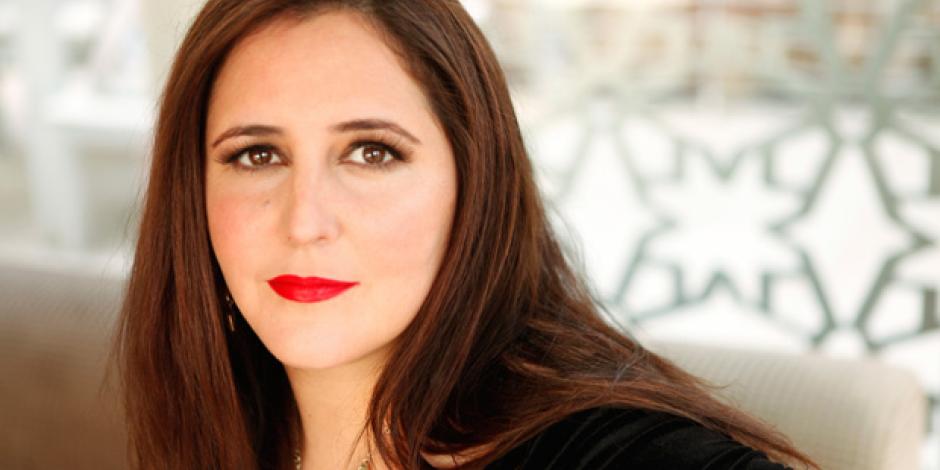My name is Mithra Mastropierro. I am in my early thirties and am an opera singer — a soprano. I live in Hoboken, New Jersey, just across the Hudson River from Manhattan. I don’t have a nine-to-five job, so what my day looks like depends on whether I am home and have to learn new music, practice, or go to lessons and coachings, or if I am in a production where I have rehearsalProberehearsals every day.
If I have to learn a new partRollepart, I sit down at my little roll-out pianomobiles E-Pianoroll-out piano, open up my scorePartiturscore and start to study the music. After that, I practice, which means I warm up: I do some exercises and then sing the arias I would sing in an auditionVorsingen, Singprobeaudition, or that I have to learn for my next production. I go to the gymFitnessstudiogym regularly, too, because keeping fit is very important for a singer.
Once a week, I have a voice lesson. I take the bus to New York City and walk to 54th and 7th Avenue. My voice teacher always gives everyone more time, so usually, I have to wait half an hour for my voice lesson.
During the audition season, I may have two or three auditions in one day. In the morning, I drink a lot of water and go to the hairdresser, where they to blow out sb's hairjmdn. ein Styling, eine Föhnfrisur machenblow out my hair. Then I get on the PATH train to New York City. On the train, I put on my make-up, which I should have done before, but never do. Sometimes I reserve a room to warm up in, so I go there, and my agent is usually waiting. Then they call me in to the audition. The opera company normally sends one or two people, and they ask me what I would like to sing. I usually choose my favorite piece, unlessaußerunless it’s for a specific role. Then I sing the main aria from that role as well as another, contrasting aria.
During the audition season, I may have two or three auditions in one day
After the audition, my agent comes and tells me how great I was. She would never tell me immediately that it wasn’t good — only later. Then I talk to the other singers before I go to the next audition. Sometimes I just have to go one room over to the next studio; sometimes it’s in another part of town. If you are lucky, you do ten auditions to get one job.
Luckily, my agent gets me very good auditions for top opera houses, but they have to hire the big stars for the big parts. I am young for those parts — like the ones in Norma by Bellini or Puccini’s Tosca. But I often get offers to cover a major role, which means that if something happens and the singer of that part gets sick, I to stand in for sb.für jmdn. einspringenstand in for her. The last production I did was Nabucco, and I covered the part of Abigaille.
Rehearsals usually start three weeks before the first performance. At ten o’clock, there is a big music rehearsal, where they sing the whole opera, and the conductorDirigent(in)conductor sees where everyone is — from a musical point of view. In the afternoon, you do three hours of stagingInszenierung, Bühnenarbeitstaging, when the singers just practice their movements and acting on stage. As a cover, I watch all that. After a week, rehearsals are held for the cover parts. When the shows start — usually a block of seven to ten performances — you have to be within a half-hour radius of the opera house during the show so that, if anything happens, they can call you, and you go on.
As a cover, you have to be within a half-hour radius of the opera house during the show
Being a cover is stressful, because you have to watch everything, and you always have to be musically ready as well. Last summer at the Glimmerglass Opera Festival in Cooperstown, New York, I was covering Lady Macbeth, and I was also singing the role of the lady-in-waiting. That’s even more pressure, because you have two parts, and sometimes they sing together. You have to remember which one you are at which time.
After the auditions and performances, I am happy to come home again and cook and relax in the evenings with my husband and our two cats.
Hear Mithra Mastropierro sing "Vieni t'affretta" from Macbeth
Neugierig auf mehr?
Dann nutzen Sie die Möglichkeit und stellen Sie sich Ihr optimales Abo ganz nach Ihren Wünschen zusammen.



